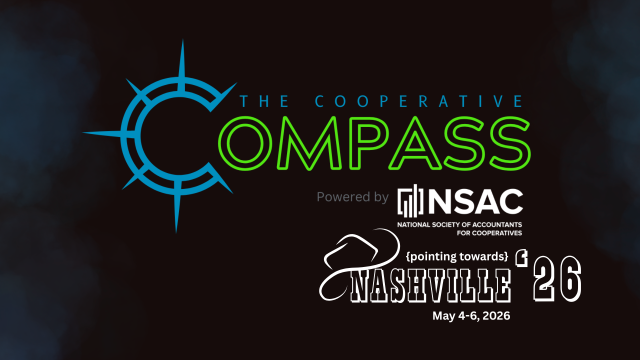The National Society of Accountants for Cooperatives (NSAC) serves individual members and their respective organizations. Employees of cooperatives such as CFOs, controllers, tax directors/managers, accountants, bookkeepers, office managers, internal auditors, in-house legal staff, and other financial professionals are included as members. Professional service providers advising cooperatives such as CPAs, attorneys, banking professionals, government employees advising cooperatives and cooperative association employees are amongst members as well.
The organization provides professionals with education, resources, and connections needed to stay actively involved and on the cutting edge when it comes to the financial management and planning of cooperative business.
In 1935, auditors for the Northern States Cooperative League began holding regular meetings and discussing the need for collaboration and a more formalized organization. Out of these meetings, the National Society of Accountants for Cooperatives was formed:
1943 – Formally structures as an independent, nonprofit corporation
1948 – Begins publishing The Cooperative Accountant
1952 – Publishes first cooperative accounting report
1980 – Hires first professional manager
1998 – Organizes nationwide Electric Cooperative Chapter
2001 – Begins actively participating in FASB projects that impact co-ops
2008 – Becomes industry leader in international accounting standards development
2011 – Celebrates 75th Anniversary
2015 – Partners with the NRECA to bring the profession the premier tax, finance and accounting conference for cooperatives
2020 – Continues efforts to bring more virtual opportunities to professionals globally

.png)
.png)